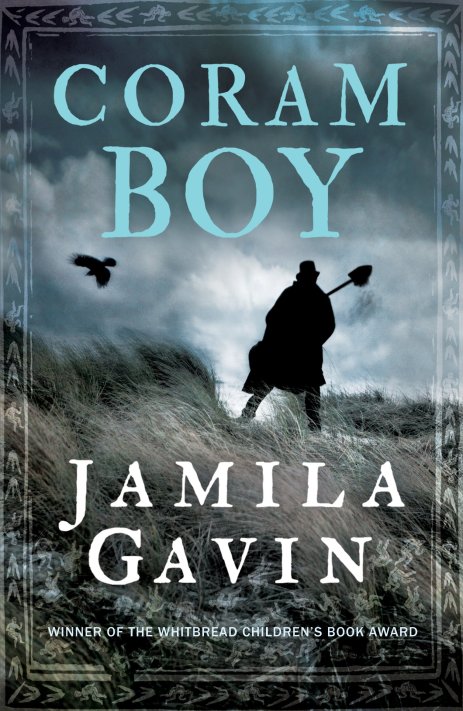If you could name a trailblazer for vulnerable children then who would it be?
Ever heard of Thomas Coram?
You probably haven’t as his story is little known yet this man was a determined campaigner for people who could not stand up for themselves and a champion of vulnerable children. His is a story we should all be teaching.
I had the pleasure of seeing Coram Boy on stage recently at Nottingham’s Albert Hall with its iconic Binns Organ and this is what prompted me to write this blog. Directed by @NottinghamPlayhouse’s @AdamPenford this brilliant community production was professional and pumping with pride, passion and participation.
Thomas Coram was a humanitarian ahead of his times shocked to discover destitute and dying children on London’s streets. His idea was to create a hospice, or ‘hospital’, where such children – ‘foundlings’ – could be housed and educated.
These children, mostly orphans, were products of a poverty-stricken society where the attitude towards babies born outside of wedlock meant a life of rejection and inferiority.
Coram began a campaign to create a home for these babies by enlisting the support of leading members of the aristocracy, the City, the arts and the sciences through a series of petitions. Early supporters of the captain’s endeavours included the composer George Frideric Handel, the artist William Hogarth and author Charles Dickens.
George Frederic Handel conducted annual performances to raise vital funds for the Hospital and his masterpiece Messiah was donated to the Foundling Hospital.
After seventeen years of campaigning, Coram managed to persuade sufficient ‘persons of quality and distinction’ to support his petition to King George II to grant a Royal Charter for the building of the Foundling Hospital in Bloomsbury.
In October 1739 the King signed a royal charter for the “Education and Maintenance of Exposed and Deserted Young Children”. It is regarded as the world’s first incorporated charity.
Within the Hospital itself life was strict and all children wore a uniform and followed a regimented daily routine of education, exercise, diet, religion and obedience.

Image: http://www.foundlingmuseum.org.uk/about/our-history/
Over the next few years, children were brought to the Foundling Hospital for shelter. There they were provided with excellent healthcare and an education fit for their station in life, before apprenticing the boys to learn a trade and the girls to domestic service.
Mothers brought their babies to the Foundling Hospital to be cared for, with many hopeful that their circumstances would change so they could one day reclaim them. The Hospital arranged for foster families to care for the babies and young children until the age of five. They were then brought to live and be educated in the Foundling Hospital until the age of 15, many being trained for domestic or military service.
Every child admitted to the Foundling Hospital was baptised and given a new name. Mothers also left a token which could be used to identify their child if they returned to reclaim their child.
The charity evolved to begin pioneering work in adoption, early years and parenting. The Thomas Coram Foundation for Children, today known as Coram, developed new approaches to childcare and education, informed by developments in child psychiatry which highlighted the importance of children’s emotional wellbeing and need for secure family placement.
Today, Coram offers direct, practical help and emotional support to vulnerable children, young people, and their families.
Thomas Coram died in 1751 but his name lives on today in the Thomas Coram Research Unit a multidisciplinary research unit within the Institute of Education at UCL.
Books about Thomas Coram:
Captain Coram: Champion for Children by Robin Ollington and beautifully illustrated by Albany Wiseman is a new children’s book aimed at KS2 which tells the remarkable story of Thomas Coram. With a foreword by Peter Capaldi, the book was published in September 2018 to celebrate the 350th anniversary of the birth of Coram’s remarkable founder.
The Whitbread 2000 Book of the Year, Coram Boy by Jamila Gavin, is a haunting and captivating work of historical fiction for children.
The Coram man takes babies and money from desperate mothers, promising to deliver them safely to a Foundling Hospital in London. Instead, he murders them and buries them by the roadside, to the helpless horror of his mentally ill son, Mish.
Mish saves one, Aaron, who grows up happily unaware of his history, proving himself a promising musician. As Aaron’s new life takes him closer to his real family, the watchful Mish makes a terrible mistake, delivering Aaron and his best friend Toby back into the hands of the Coram man.
It tells the story of a dark time in English history.
Coram Boy was on stage recently at Nottingham’s Albert Hall seen below with its iconic Binns Organ. This magnificent play tells the story of Aaron and his best friend Toby, who are wards of the Foundling Hospital. As the story unfolds the boys uncover the dark underbelly of Georgian society, and the wicked and gruesome truth behind the infamous ‘Coram men’ who pretended to work for the hospital.

This fascinating history by Gillian Pugh of the first children’s charity charts the rise of this incredible institution, and examines the attitude towards foundlings as illegitimate children over the years. Reliving the experience through the voices of past members of the hospital, this book is a fascinating social history of one of London’s worst cases of poverty.



